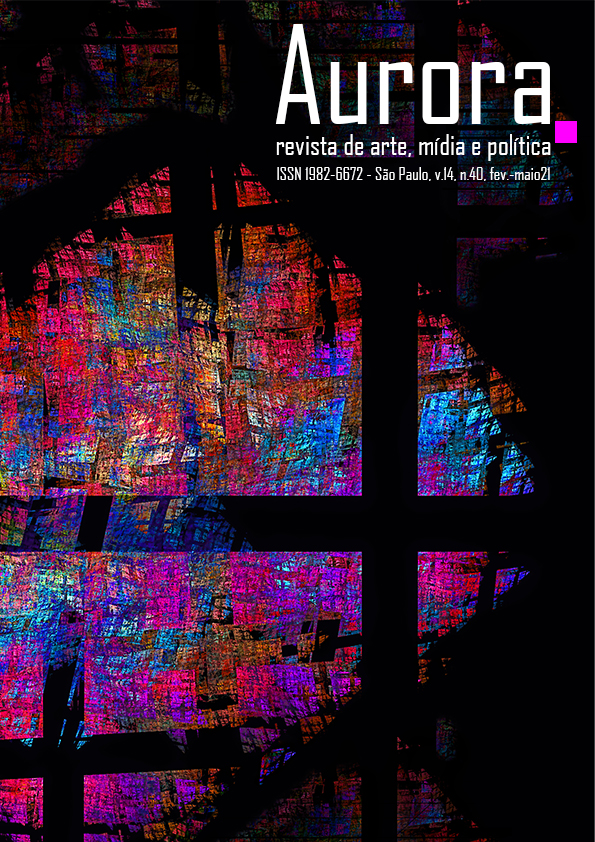Disinformation as a political strategy
an analysis of presidential speeches during the covid-19 pandemic
DOI:
https://doi.org/10.23925/1982-6672.2021v14i40p48-67Keywords:
desinformação, covid-19, análise de discurso, BolsonaroAbstract
The paper analyzes President Jair Bolsonaro’s speeches during the covid-19 pandemic. The objective is to understand the argumentative strategies present in the most common misinformation used by the Brazilian leader. The corpus consists of 687 statements made between January and September 2020. For the methodology, we combine the quantitative content analysis with the critical discourse analysis proposed by Van Dijk. The result showed that most of Bolsonaro’s speeches about the pandemic contained inaccurate and unsustainable information. The most repeated phrases aimed to control the context to outsource
guilt and defend the return to normality.
References
ALLCOTT, H; GENTZKOW, M. Social media and fake news in the 2016 election. Journal of economic perspectives, v. 31, n. 2, p. 211-36, 2017.
BARDIN, L. Análise de conteúdo. 4. ed. Lisboa, Edições 70, 2010.
CANAVILHAS, J; FERRARI, P. Fact-checking: o jornalismo regressa às origens. Jornalismo em tempo de transformação: desafios de produção e de ação, p. 30-49, 2018.
CUNHA SANTOS, M; FOSSÁ, M. I. T. A disputa pelo poder político em meio à pandemia de covid-19: análise do confronto entre João Doria e Jair Bolsonaro. Revista Panorama-Revista de Comunicação Social, v. 10, n. 1, 2020.
FOUCAULT, M. A arqueologia do saber. Rio de Janeiro: Forense Universitária, 1997.
GRAVES, L. Boundaries not drawn: Mapping the institutional roots of the global fact-checking movement. Journalism Studies, v. 19, n. 5, p. 613-631, 2018.
JACK, C. Lexicon of lies: Terms for problematic information. Data & Society, v. 3, p. 22, 2017.
LAZER, D. et al. The science of fake news. Science, v. 359, n. 6380, p. 1094-1096, 2018.
LISBOA, L A. et al. A Disseminação da Desinformação Promovida por Líderes Estatais na Pandemia da COVID-19. In: Anais do I Workshop sobre as Implicações da Computação na Sociedade. SBC, 2020. p. 114-121.
LOWREY, W. The emergence and development of news fact-checking sites: Institutional logics and population ecology. Journalism Studies, v. 18, n. 3, p. 376-394, 2017.
NIELSEN, R. K.; GRAVES, L. "News you don't believe": Audience perspectives on fake news. 2017.
POSETTI, J; BONTCHEVA, K. Disinfodemic. Deciphering COVID-19 disinformation. UNESCO Policy Brief 1, 2020.
RASQUEL, S. G. A desinformação como estratégia de manipulação e abuso de poder no discurso político. Letras Escreve, v. 8, n. 2, p. 07-32, 2019.
RECUERO, R; SOARES, F. O Discurso Desinformativo sobre a Cura do COVID-19 no Twitter. In: E-Compós. 2020.
SEATON, J; SIPPITT, A; WORTHY, B. Fact Checking and Information in the Age of Covid. The Political Quarterly, v. 91, n. 3, p. 578-584, 2020.
TANDOC, E C.; LIM, Z. W.; LING, R. Defining “fake news” A typology of scholarly definitions. Digital journalism, v. 6, n. 2, p. 137-153, 2018.
TAVARES, L. P. et al. Análise dos discursos do Presidente Jair Bolsonaro em meio à pandemia: o coronavírus é só uma “gripezinha”?. Research, Society and Development, v. 9, n. 7, 2020.
UNVER, Akin. Fact-Checkers and Fact-Checking In Turkey. EDAM Research Reports, 2020.
VAN DIJK, T. A. El análisis crítico del discurso. Revista anthropos: Huellas del conocimiento, n. 186, p. 23-36, 1999.
VAN DIJK, T. A. El discurso como estructura y proceso. 2000.
VAN DIJK, T. A. Discourse and manipulation. In: Discourse & Society. Vol. 17(2), London: Sage Publication, p. 359-383, 2006.
Downloads
Published
How to Cite
Issue
Section
License
Copyright (c) 2021 Aurora. Revista de Arte, Mídia e Política

This work is licensed under a Creative Commons Attribution-NonCommercial-ShareAlike 4.0 International License.










